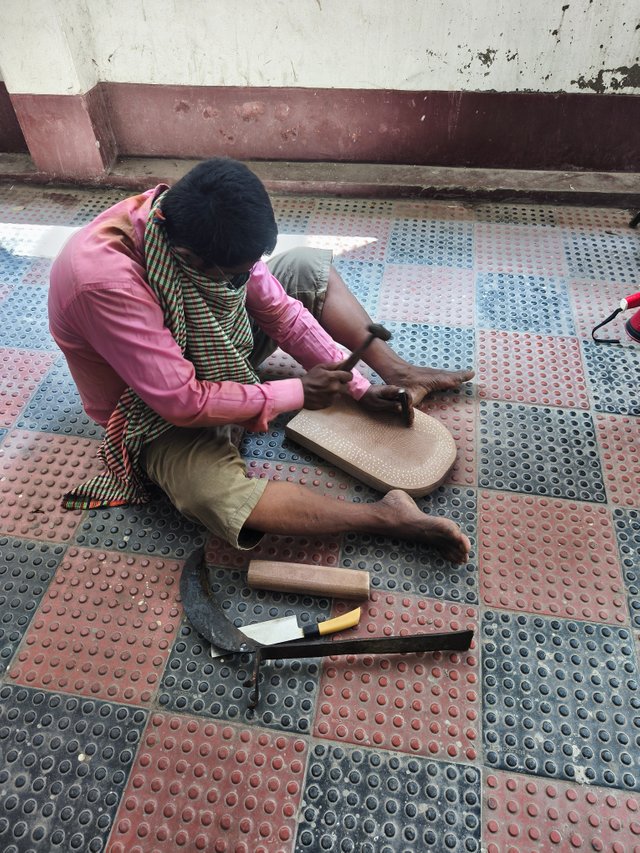One picture, a thousand stories-Wk19
Hello..!!
My Dear Friends,
I am @tanvirahammad10 from #Bangladesh 🇧🇩
In the noisy life of the city, a familiar call suddenly comes up: "Shilpata, lend me a knife and a knife..."
They roam the streets, pushing a van or carrying a load on their shoulders. The same tune keeps playing on an old microphone, which makes the people of the neighborhood peek out of the windows whenever they hear it. Housewives come out with blunt knives or knives in their hands. These essential kitchen items become shiny in an instant.
This is how they turn the wheel of life. Some are named Jasim, some are named Nuru, and some are named Rahim. But their identity is the same: a loan shark.
This work had a special value in the villages of Bengal. If they did not lend a shilpata, knife or a knife in the kitchen, the cooking of the day would not be done. When they received their call, the housewives would immediately come out with blunt knives in their hands. They would sit in the village courtyards or in the neighborhoods of the city and lend them.
But with the changing times, this profession is now very marginal. Even in the city, it has become difficult to survive in the competition of modern equipment and cheap markets. It is now easy to buy a new bati, but not everyone relies on a dull bati as before.
They leave after breakfast in the morning. They take to the road in a van or with a load on their shoulders. They wander around the streets for hours. They stand in each neighborhood and use a microphone to say, "Lend bati and knives... Lend chisels..."
Sometimes housewives call with a smile, sometimes even after walking all day, they do not find a single job. After a small meal in the afternoon, they go out again. Their hard work does not stop in the sun, rain or cold. They return home at night, exhausted, with a small income.
An average day, a loan shark can earn 300 to 500 taka. However, if they do not get work, their income is close to zero. It is difficult to run a family with such a low income. Children's education, house rent, food - all of this makes life a constant struggle. Many say, "Brother, our work is not over even when the day ends. We have to feed our stomachs."
Their call is not just a profession, but a kind of cultural sound. For the elders of the city, it is a childhood memory. Whenever they hear that call, they remember the mother's rushing around in the kitchen, or the busy preparation of lunch. This call is a kind of folk culture, which is slowly being lost in the modern noise of the city.
Yet whenever this call comes to mind, it seems that it is not just a struggle for livelihood, but the last voice of a tradition lost in the alleys of the city.
◦•●◉✿ photography details ✿◉●•◦
| Device Name 📱 | Location 📍 | photographer 📸 |
|---|---|---|
| Redmi note 14 pro 5G | Bangladesh | @tanvirahammad10 |
I am inviting my friend @genomil @luimer79 @abi24
Thank you very much for reading my post, let me know how you liked it in the comments. Thanks again everyone, stay well.
Best Regards
@tanvirahammad10




My X promotion link
https://x.com/tanvirahammad85/status/1958428708852932687?t=KOofJxhI8ax_vg7ED4Dzsg&s=19
Thank you for publishing an article in the Steem Kids & Parent community today. We have assessed your entry and we present the result of our assessment below.
MODs Comment/Recommendation:
Remember to always share your post on Twitter. This POST LINK is a guide to that effect.